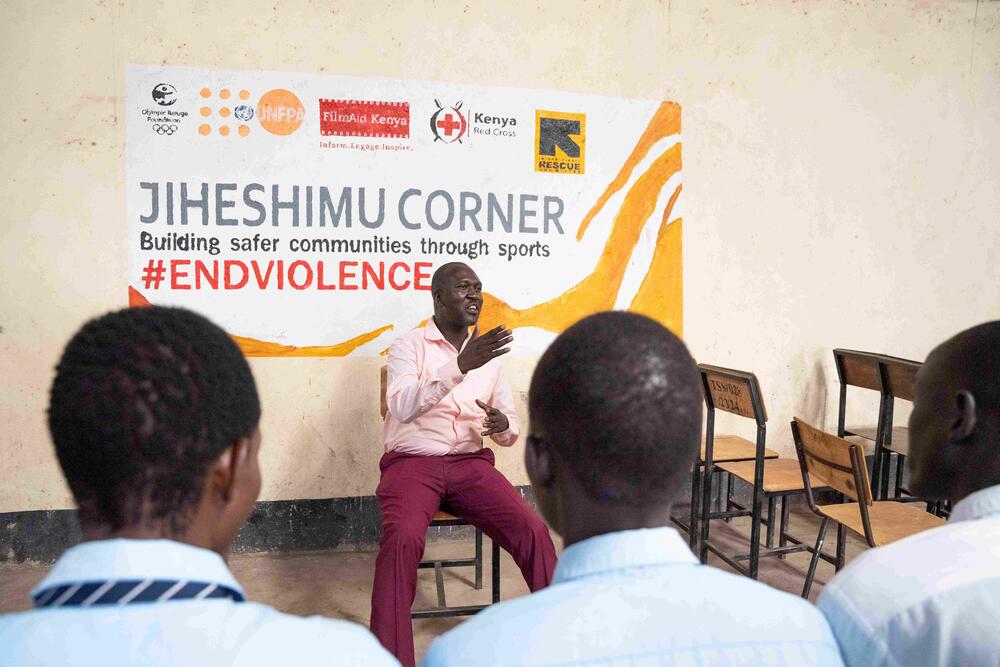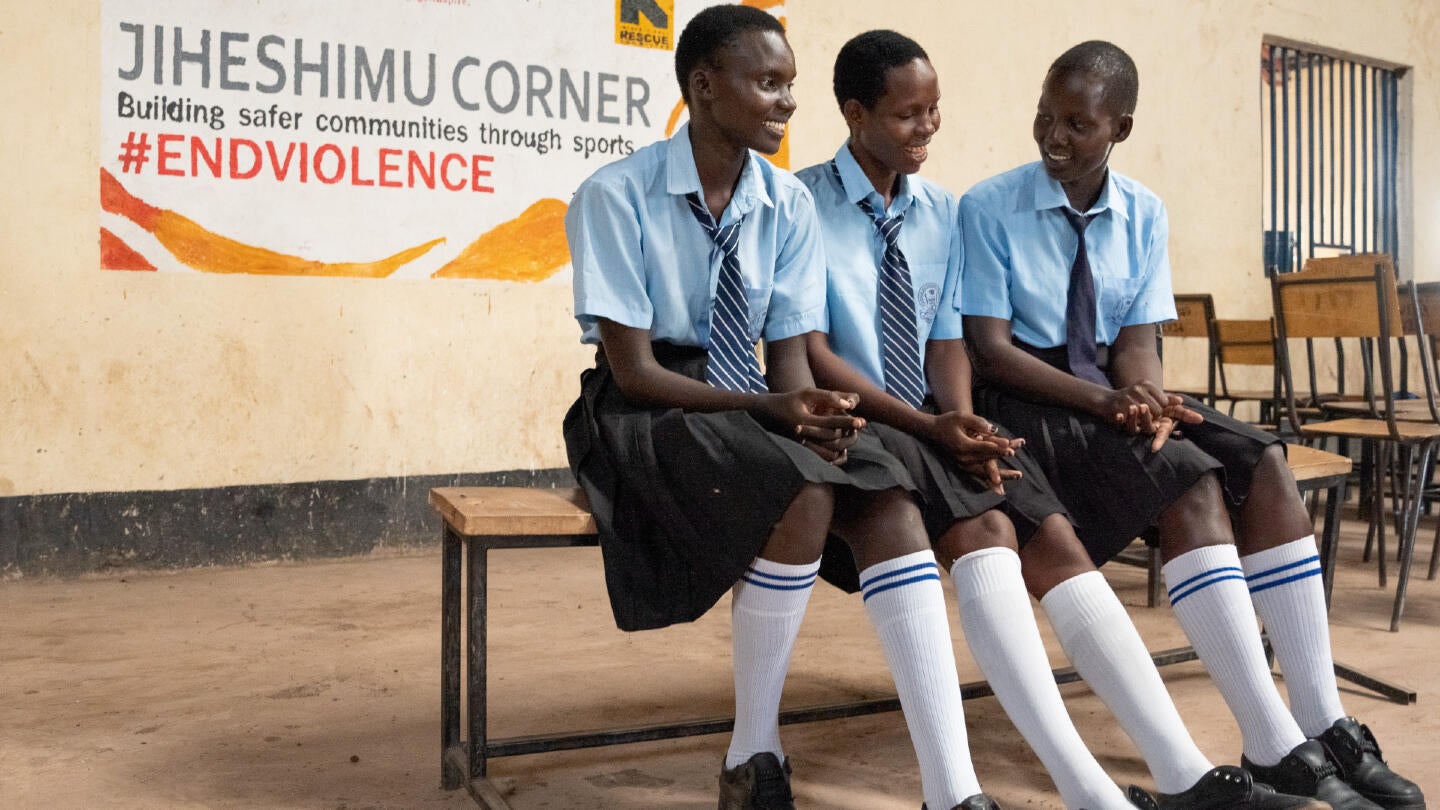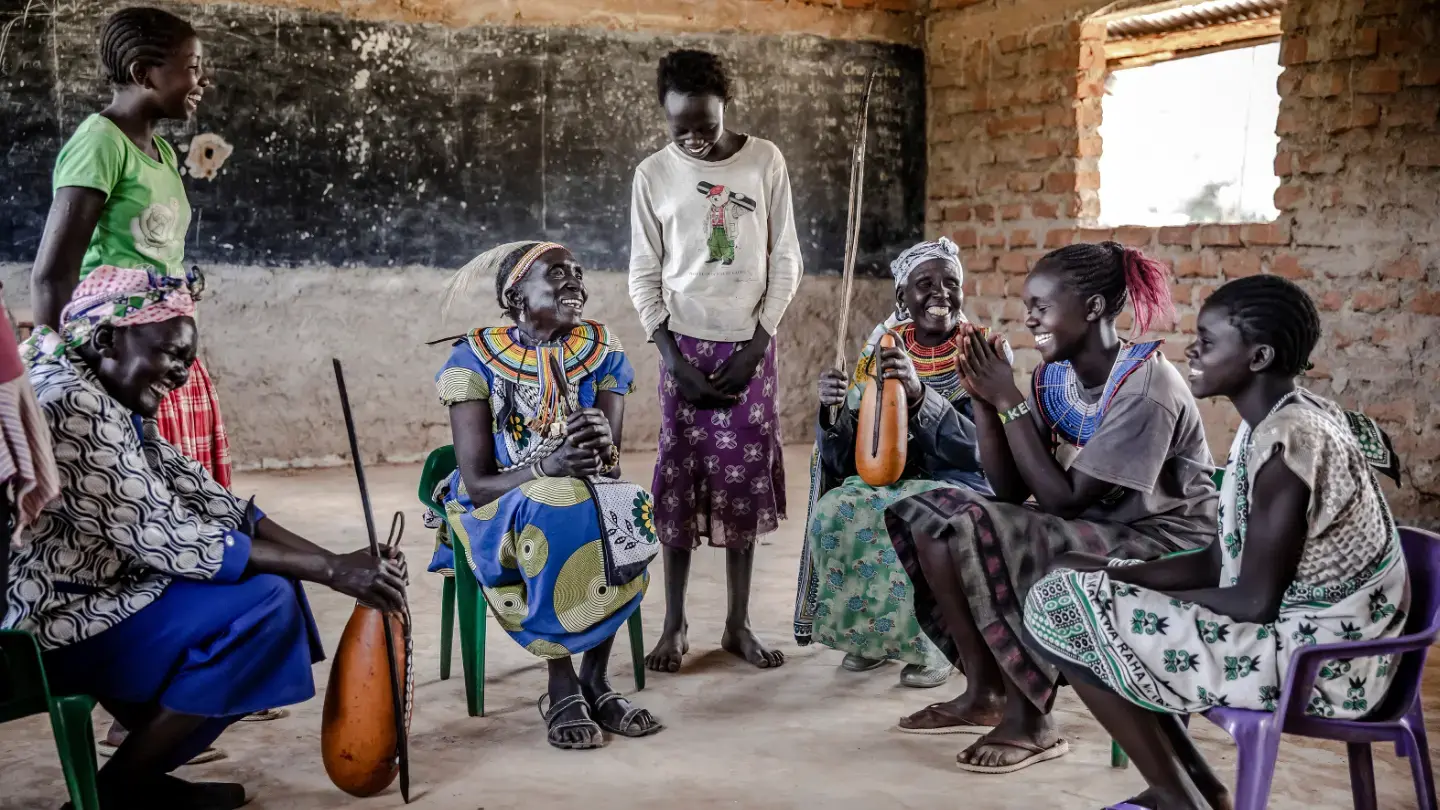At Tarach Secondary School located in Turkana West sub-county, boys outnumber girls almost 4 to 1 in student population. The school is located just two kilometers from Kakuma refugee camp, and hosts students from the refugee and local communities. “In the past, issues such as teenage pregnancy and early marriage have led to girls dropping out of school. However, over the last two years, girls’ enrollment has increased from 68 female students in 2022 to 139 in 2024,” says the school’s principal Peter Eyen.
Keeping girls in school is a top priority for Principal Eyen, and programmes such as Play2Protect are instrumental in achieving this. The initiative that is funded by Olympic Refuge Foundation has brought about positive changes in the school by engaging both male and female students in various sports. “Participating in sports has helped build girls self-confidence and self-esteem,” says Principal Eyen. “When boys see girls excelling in sports, it positively influences their perception on gender roles and helps to combat gender bias.”
As part of the Play2Protect project, teachers and coaches at Tarach Secondary School have been trained on understanding gender-based violence and how to lead sessions on gender equality and prevention of violence against women and girls. The school has established the “Jiheshimu Corner,” a safe space where students can discuss various issues, including sexual and reproductive health. “Participating in sports has given girls the confidence to express themselves, and when they come to the safe space, they are able to speak more openly with guidance counsellors who support them to receive the help and services they need,” says John Sifuma, a teacher and guidance counsellor at Tarach.

Seventeen-year-old students Gloria, Sophie, and Stella all play for the Tarach girls football team. They credit the sport for helping them form a deep friendship with each other. “When I got my first period, I was scared and did not know what was happening, but I could confide in Sophie as a friend and team mate and she helped me in that situation,” says Gloria, who plays the striker position on the girls team.
The safe space sessions provide girls and boys with a supportive environment to tackle issues such as gender-based violence, teenage pregnancy, and menstrual health. The students are also able to receive psychosocial support from staff and peer educators trained on life skills in sports. The combination of mentorship on the field and guidance in safe spaces has improved decision-making and resilience among students. Female coaches also serve as role models, inspiring girls to take leadership roles in both sports and academics. “The positive changes we’ve seen underscore the importance of integrating sports and safe spaces to combat gender stereotypes and promote equality,” says Principal Eyen.



